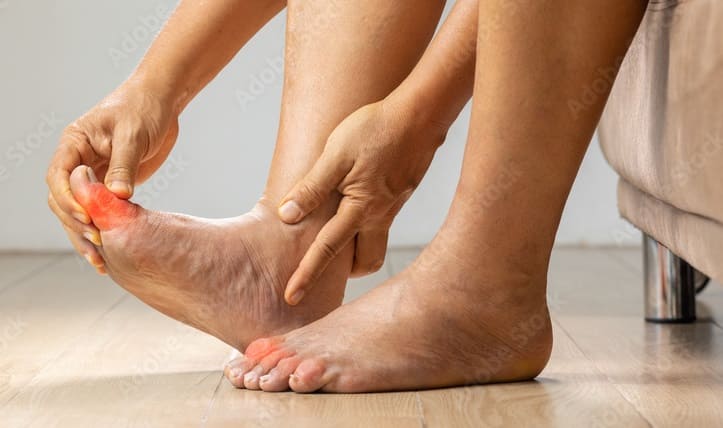We often take our feet for granted, focusing on bigger health issues while ignoring the clues right under our noses—err, feet. But did you know that your feet can offer valuable insights into your overall health? From the way they feel to the condition of your toenails, your feet might be trying to tell you something important. In this post, we’ll dive into the secrets your feet reveal about your health and how paying attention to them can lead to better overall wellness.
1. Feet as a Reflection of Circulation
Ever noticed your feet feeling cold for no apparent reason? This could be a sign of poor circulation. Cold feet might indicate that blood isn’t flowing as well as it should, which could be a symptom of something like peripheral artery disease (PAD). On the flip side, if your feet or ankles are swollen, it might be a sign that your body is retaining fluid, which could point to heart or kidney issues. If these symptoms persist, it’s worth getting them checked out.
2. Toenail Changes and Health
Your toenails can speak volumes about your health. Here’s what to look out for:
- White Spots: These are usually harmless and might just be the result of minor injuries or fungal infections.
- Yellowing: This could be a sign of a fungal infection or conditions like psoriasis.
- Pitting: Little dents in your toenails might indicate psoriasis or eczema.
- Bluish Tint: This might suggest poor circulation or respiratory issues.
3. Arch Issues and Posture
The arches of your feet are crucial for maintaining balance and supporting your body’s weight. If you have flat feet or high arches, you might experience discomfort not just in your feet, but also in your knees, hips, and lower back. Your walking pattern might change, affecting your posture. Wearing supportive shoes or using orthotics might help alleviate these issues.
4. Skin Conditions on Feet
Your feet’s skin can reveal a lot about your health. Dry, cracked heels might be a sign of dehydration or thyroid issues. Persistent blisters or sores could indicate infections or that your shoes don’t fit quite right. Keeping your feet clean and moisturized and seeking advice for ongoing skin issues can help you address both the symptoms and any underlying problems.
5. Foot Odor and Systemic Health
Foot odor isn’t just a nuisance—it can sometimes indicate more serious health issues. Persistent bad smell might suggest a fungal infection or imbalances in your body’s natural bacteria. In some cases, it could point to systemic issues like diabetes or kidney disease. Keeping your feet clean and dry and getting a medical opinion if the odor persists can help manage both the smell and its potential causes.
6. Gait and Walking Patterns
How you walk can give clues about your overall health. An abnormal gait or changes in your walking pattern might signal joint alignment issues or muscular imbalances. Sometimes, changes in how you walk can be linked to neurological conditions or injuries. If you notice anything unusual, it might be worth discussing with a healthcare provider or physical therapist.
7. Foot Pain and Systemic Conditions
Foot pain, whether from conditions like plantar fasciitis or bunions, can sometimes be related to broader health issues. For example, rheumatoid arthritis or gout can cause foot pain and inflammation. If foot pain is persistent, it’s worth exploring whether it’s a symptom of a larger health concern.
Conclusion:
Your feet are more than just tools for walking—they’re a reflection of your overall health. By tuning into the signals they’re sending, you can gain valuable insights into your circulation, posture, skin health, and more. Taking good care of your feet and being aware of any changes can help you catch potential health issues early. Remember, if you notice anything unusual or persistent, don’t hesitate to reach out to a healthcare professional. Your feet might just be trying to tell you something about your overall health.
Also Read:
